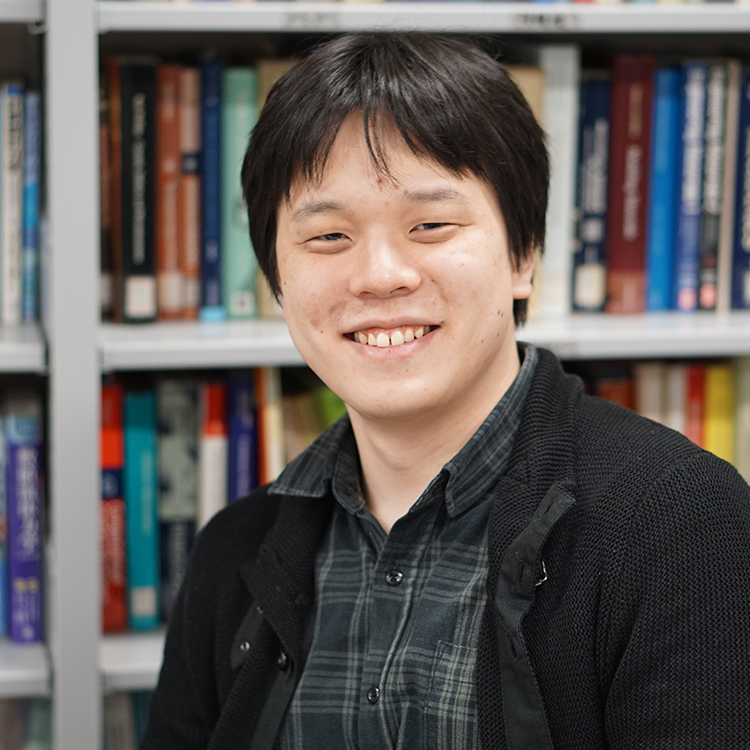メッセージ
MESSAGE
Faculty Messages
Learning the Basics and Creating New Value
Head of Department (Undergraduate), Department of Mechanical Engineering, Faculty of Engineering
Professor Naohiko Sugita
Mechanical engineering aims to create "new value". It is also responsible for the methods of delivering that value. Therefore, it is necessary to comprehensively study material selection, production methods, power transmission methods, optimization systems, design methods, automation and intelligence technologies, etc., which are supported by many experienced staff members. In addition, there are many senior students in the industrial world, and through visits, practical training, and special lectures, students can come into contact with new value information in the world, and joint research is actively conducted. During the undergraduate years, students can learn the fundamentals of mechanical engineering through lectures and exercises. In addition, students will have plenty of opportunities to pursue " the creation of new value" that is not bound by conventional methods and propose it to the world. We look forward to your innovative ideas.
Aiming for the Next Generation Based on Tradition
Head of Department (Graduate), Department of Mechanical Engineering, Graduate School of Engineering
Professor Fumito Arai
Since its establishment in 1874, mechanical engineering has been based on the four fundamental dynamics ("analysis") and the design and production ("synthesis") that integrate knowledge and give shape to it, and has solved various technological problems that society faces as "science and technology for society" based on these principles. We still value this traditional educational system in which "analysis" and "synthesis" are strongly linked. We hope that you, like many of your predecessors, will first take the time to acquire this basic ability, which is not just basic physical strength. Any new idea can only become a technology that changes the world if it is backed by a foundation. Beyond that, we believe that the creation of the next generation, which only you can do, awaits you.
From Basics to Applications; This is the Door that Opens the Future.
Institute of Industrial Science
Professor Mari Oshima
When I was a student, I studied fluid analysis. One day, a professor of neurosurgery approached me about simulation of diseases related to fluid dynamics, and through communication with the professor, I found it interesting and shifted my research field to that one. Many people may think that the fields of mechanical engineering and medicine are far apart, but to tell the truth, it is becoming clear that a major factor in causing disease is the change in cells, which are responsible for various functions, caused by mechanical stimuli. The important thing is to properly understand the phenomena from the viewpoint of physical mechanics. The good thing about the Department of Mechanical Engineering is that you can study basic mechanics and apply the results to various fields. The point is to learn the fundamentals and then to integrate them. I believe that learning the fundamentals will open up future possibilities for employment, research, etc., with a wide range of applied skills. I hope you will study hard and do your best.
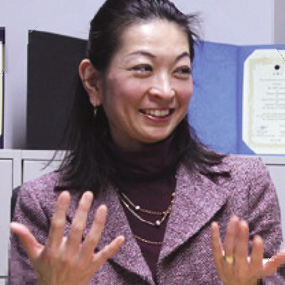
You Came to the Faculty of Engineering, so Let's Build Something New.
Department of Mechanical Engineering, Faculty of Engineering
Professor Masayuki Nakao
I was an engineer in a company for 9 years after completing my master's degree. Then I went back to college to teach and research production engineering and mechanical design. I believe that most students who go into mechanical engineering go into the engineering profession, not as researchers. As an engineer, the ability to do "analysis" is important, but what is expected by companies is the ability to do "synthesis". This cannot be acquired just by listening to classroom lectures at university. At the very least, you must first experience the entire design and manufacturing process, and then output the knowledge you have learned in classroom lectures to build a complete picture in your mind. For this reason, especially in the third year of mechanical engineering, all afternoons are devoted to exercises, where students are asked to build a variety of things. My laboratory is in this vein, with people who like to make new things. However, since the objects are new, there is inevitably a bias toward nano/micro processing techniques. It is difficult to see the object when it is small, but it is an enjoyable field where the frontier of research can be seen in a wide range of areas.
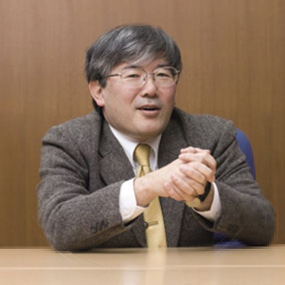
Messages from the Graduates
The Importance of What I Learned Reaffirmed after Entering the Workforce
2010 Bachelor's Degree
Powertrain Development Division, Mazda Motor Corporation
Saori Mizuno
From the acquisition of basic studies in the liberal arts program, the perspective of application (products) always comes into play after entering a mechanical engineering program. In the field of product development, where many of our graduates are active, they are required to explore and realize the knowledge necessary to create better products. I feel that my time as a student in the mechanical engineering department was a good preparation period for this. As I go out into the world and put my knowledge into practice, I am now reaffirming the importance of the way of thinking and the spirit of an engineer that I learned in the mechanical engineering course, as well as the meaning of the phrase "the ability to see through to the essence" in addition to the knowledge I learned in class.

Messages from the Students
Put What You Learn into Practice and Make it Work for You
Senior, Department of Mechanical Engineering, Faculty of Engineering
Akihiro Takeshita
I chose Mechanical Engineering A because I have been interested in machines around me since I was a child. In Mechanical Engineering A, there are not a few classroom lectures focusing on the four dynamics, but I think that is how much knowledge in a wide range of fields is required for a single machine. One of the major attractions of Mechanical Engineering A is that students not only learn knowledge, but also deepen their understanding through exercises in the classes. And even after choosing a department, you can choose from a wide range of mechanical engineering fields to pursue research that interests you. I myself am currently doing research on engines. Engines, which support various means of transportation, contain all the elements of mechanical engineering, and what I have learned through a combination of classroom lectures and exercises is being applied to my research.
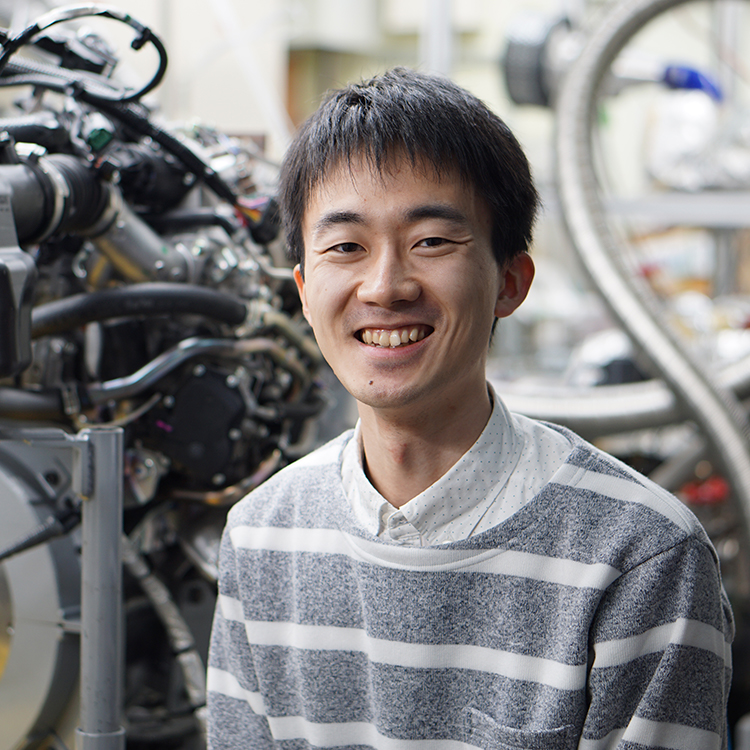
Tolerance and Many Options are Attractive
1st Year, Master's Course, Department of Mechanical Engineering, Graduate School of Engineering
Yuko Tomita
I originally enrolled in Natural Sciences II to do basic research in the biological field, but during my time at Komaba, I had the opportunity to visit the Machinery A lab and became interested in the field of mechanics, so I enrolled in Machinery A. At first I was anxious because there were not many people coming from Natural Sciences II, but I soon got used to the atmosphere of tolerance for various things. In my undergraduate classes, there were not only classroom lectures focusing on the four forces and mathematics, but also classes in which we actually made things with our own hands, which I enjoyed. Currently, I am doing research using molecular dynamics simulations in the fluid dynamics laboratory. I think the charm of Machinery A is that there are so many different research themes within a single laboratory that even those who have not yet decided exactly what kind of research they want to do can find a research field that they are interested in.
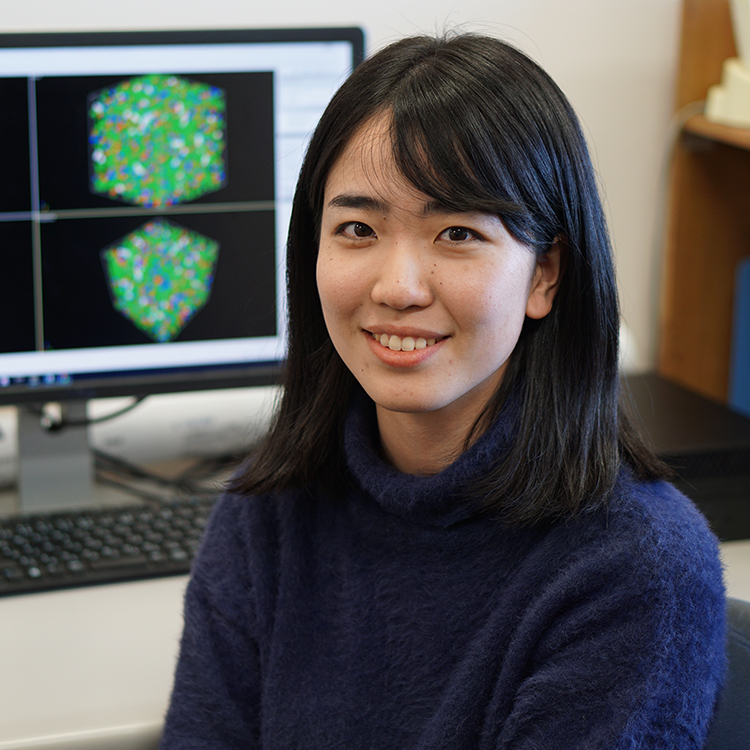
Creating New Value Based on Knowledge
3rd Year, Doctoral Course, Department of Mechanical Engineering, Graduate School of Engineering
Daiki Sakakima
Having had a love of science fiction since I was a child, I had been thinking of entering a mechanical or electrical field from the time I entered university, and I chose Mechanical A, where I could learn about hardware in a broad range of fields. In graduate school, I am conducting simulation-based research mainly on the strength and reliability of semiconductor devices. In mechanical engineering laboratories, a wide variety of research is conducted, ranging from fundamental areas such as the elucidation of physical phenomena to more familiar areas such as solving problems faced by industry, but always from the perspective of "application" (use in products and practical application). For this reason, many joint research projects are conducted with companies and research institutes. Regardless of whether you want to be an engineer or a researcher, I recommend this department to those who want to create new value with practical application based on basic knowledge.
